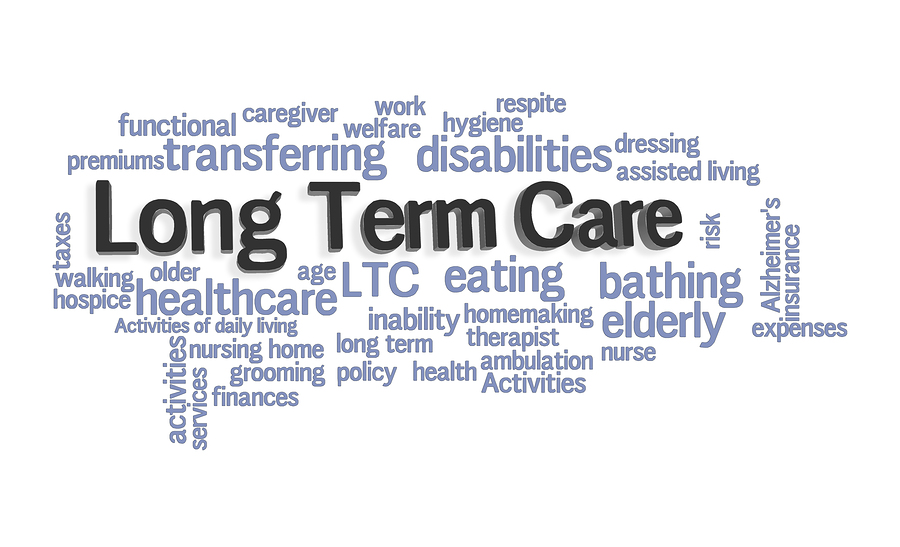This is a question I am often asked, and it seems I’ve been getting the question with more frequency lately. Although I’ve written on this topic a few times before, I want to give a concise overview of what you need to know about using your long-term care insurance policy in a CCRC, including some new things I have discovered over the last year or so.
The short answer…
Generally speaking, if you move to a CCRC (aka, continuing care retirement community or “life plan community”), you can use your long-term care insurance (LTCI). Filing a claim for LTCI is typically triggered by the inability to perform two to three activities of daily living (ADLs) without the assistance of another person, as outlined in the policy terms. This trigger doesn’t change if you live in a CCRC.
As a resident of a CCRC, if the time comes that you are unable to perform such activities then it is at that time that you, or your legal proxy would file a claim on your long-term care insurance. That said, there are some caveats of which you should be aware. To understand these caveats, you first need to understand a little bit about the types of LTCI coverage and the types of CCRC residency contracts.
>> Related: 4 Ways to Pay for Long-Term Care Services
Types of long-term care insurance policies
All long-term care insurance policies fall under one of two categories: a reimbursement policy or a cash indemnity policy. A reimbursement long-term care insurance policy is the most common type offered today, although some companies do still offer cash indemnity plans.
Reimbursement LTCI policies
A reimbursement LTCI policy pays the actual cost of care up to the limit of your daily or monthly long-term care insurance benefit. For example, if your total long-term care bills are $7,000 for a month, and your policy benefit is $5,000 per month, then you would receive $5,000. However, if your long-term care bills for the month are $4,000 then you would only receive $4,000. Most likely, the remaining $1,000 would remain available in your total “pool of money.”
With a reimbursement policy, you or the services provider/facility must submit receipts to the LTCI company so they will know how much to pay; i.e., how much to reimburse you.
Cash indemnity LTCI policies
Now suppose you have a cash-indemnity long-term care insurance policy with the same $5,000 monthly benefit. In this case, you would receive $5,000 per month no matter the actual monthly cost of services to you.
The only requirement of a cash indemnity LTCI plan is that you are unable to perform a certain number of activities of daily living, typically two or three, as outlined in the policy. There is no additional requirement of submitting receipts as there is with a reimbursement policy. The cash benefit amount is sent directly to you and can be used however you wish.
>> Related: So I’ll Probably Need Long-Term Care, But for How Long?
Type of CCRC contract
Residency contracts at CCRCs take different forms. Many CCRCs offer a lifecare contract, or Type A, whereby your monthly service fee is the same no matter whether you are living independently or receiving long-term care services in the assisted living or nursing center within the community. (This isn’t to say there aren’t inflationary increases or potential ancillary charges. Be sure to understand the contract details.) Conceptually, a lifecare contract at a CCRC is like a long-term care insurance policy with lifetime unlimited benefits.
Other CCRCs offer a contract typically referred to as fee-for-service, or Type C contract. Under this contract structure, you pay less while living independently, but you pay the market rate for long-term care services if needed, which can be exorbitantly high depending on the level of care needed and how long you need it. The tradeoff, of course, is that you only pay for the care you need.
Finally, there are some CCRC contracts that work as a hybrid of the two above. With these residency contracts, residents may pay more for long-term care services but at a discounted rate.
>> Related: Get more details on CCRC residency contract structures
Limitations on claim amounts
Keeping the above explanations in mind, if a CCRC resident has a lifecare (Type A) contract and also has a reimbursement style LCTI plan, there could potentially be some limitations on the amount of benefit they can receive. The reason for this is because the resident continues paying the same monthly amount, and therefore, moving from one level of care to another doesn’t trigger any “bills.” In fact, I was recently contacted by a representative of a long-term care insurance company who had heard where a policyholder’s claim was denied outright because of this reason.
Yet, I don’t mean to imply that this would happen in every case. I recall speaking with a member of the finance team at a lifecare CCRC a couple of years ago, and I asked about this very situation. She explained to me that they have a formula used internally that determines what portion of the monthly payment is submitted to the LTCI company for reimbursement. In this case, the resident’s LTCI claim would be limited to the amount derived from the formula.
No limitations on cash indemnity plans at CCRCs
Unlike a reimbursement LTCI policy, the cash indemnity LTCI claim for a resident of a lifecare CCRC shouldn’t be limited or denied since claims do not require any bills to be submitted. Again, a cash indemnity plan on requires that the policyholder meet the specifications of the policy in terms of activities of daily living, and then the claim check is sent directly to the policyholder to cash.
>> Related: Examining Key Figures on Long-Term Care Insurance
Read the fine print
As with any financial decision, I encourage you to read the fine print and consult with an LTCI expert to understand exactly what will or will not be covered by the terms of a particular policy. Likewise, be sure you understand the details of the CCRC contract type you are choosing and how LTCI coverage will be applied should you require assisted living or skilled nursing care services in the future.

FREE Detailed Profile Reports on CCRCs/Life Plan Communities
Search Communities






